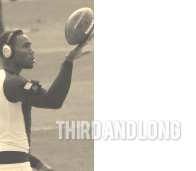
by John Hirschauer
As a student, the seemingly arbitrary notion of citing the image in your PowerPoint presentation built up a degree of resentment toward the mass media syndicates that could well afford to admit a high school student to save a bit of sleep. Intellectual property rights frustrated me in other ways- avoiding drawing copyrighted images for any sort of public display, not posting copyrighted music on YouTube when it seemed everyone else was doing it, and trying be prudent by not engaging in the endless abyss of unlicensed posts of copyrighted video on the internet. The proverbial man was denying me the opportunity to engage in the seemingly new age of media capabilities. After years of thoughtful reflection, it’s clear IP law is the glue of this media-centric society that would otherwise crumble.
Big names in the music industry cracking down on unsolicited plays of their songs- a common cry from the frustrated public-seems unwarranted given the revenue streams they haul in each year. Many, however, do not realize that this precedent is absolutely necessary in a society that threatens to make art a profitless industry. The colloquial “starving artist”- an unfortunate archetypal suppressor of some of the world’s fine young artists from pursuing their talents- could ironically become a fond fact of the past if art becomes an absolutely fruitless venture. If you remove the strict IP levels, you may end up eliminating any extrinsic motivation for artists to create for a culture passionate about getting a senseless amounts of quality media-on the cheap.
As a fellow student Eric Carlson noted to me once, it would be fantastic if, as a society, we could eliminate money as the centric goal of secular life and base everything off of intrinsic fancy. But this, at least at this juncture in the American capitalist system- is a distant reality. If we so value the talents and passion of our nation’s great painters, illustrators, filmmakers, musicians and authors, we must respect their need for a reliable source of income. Rather than an annoying nuisance, citing your sources and avoiding piracy protects the livelihoods of society’s artists.
Learn more about the trouble with the music industry here.
As a student, the seemingly arbitrary notion of citing the image in your PowerPoint presentation built up a degree of resentment toward the mass media syndicates that could well afford to admit a high school student to save a bit of sleep. Intellectual property rights frustrated me in other ways- avoiding drawing copyrighted images for any sort of public display, not posting copyrighted music on YouTube when it seemed everyone else was doing it, and trying be prudent by not engaging in the endless abyss of unlicensed posts of copyrighted video on the internet. The proverbial man was denying me the opportunity to engage in the seemingly new age of media capabilities. After years of thoughtful reflection, it’s clear IP law is the glue of this media-centric society that would otherwise crumble.
Big names in the music industry cracking down on unsolicited plays of their songs- a common cry from the frustrated public-seems unwarranted given the revenue streams they haul in each year. Many, however, do not realize that this precedent is absolutely necessary in a society that threatens to make art a profitless industry. The colloquial “starving artist”- an unfortunate archetypal suppressor of some of the world’s fine young artists from pursuing their talents- could ironically become a fond fact of the past if art becomes an absolutely fruitless venture. If you remove the strict IP levels, you may end up eliminating any extrinsic motivation for artists to create for a culture passionate about getting a senseless amounts of quality media-on the cheap.
As a fellow student Eric Carlson noted to me once, it would be fantastic if, as a society, we could eliminate money as the centric goal of secular life and base everything off of intrinsic fancy. But this, at least at this juncture in the American capitalist system- is a distant reality. If we so value the talents and passion of our nation’s great painters, illustrators, filmmakers, musicians and authors, we must respect their need for a reliable source of income. Rather than an annoying nuisance, citing your sources and avoiding piracy protects the livelihoods of society’s artists.
Learn more about the trouble with the music industry here.


 RSS Feed
RSS Feed
